Introduction to Fixed Skeletal Trailers
Fixed skeletal trailers represent a pivotal innovation in the logistics and transportation sector, characterized by their robust design and adaptability. These trailers are engineered to handle various cargo types, particularly intermodal containers, effectively transforming the logistics operations of businesses. Their skeletal structure is advantageous for maximizing payload capacity without the excess weight of a full trailer.
Understanding the Structure
The fixed skeletal trailer is designed with a minimalist framework, consisting primarily of a chassis that supports shipping containers, thereby providing a stable yet lightweight platform for transportation.
| Feature | Details |
|---|---|
| Construction Material | High-strength steel |
| Weight Capacity | Up to 60,000 lbs or more |
| Dimensions | Various sizes for standard containers |
| Axle Count | Typically 2 or 3 axles |
| Compatibility | ISO standard containers (20ft, 40ft) |

Benefits of Fixed Skeletal Trailers
Increased Payload Efficiency
One of the primary advantages of fixed skeletal trailers is their capacity to enable higher payload limits compared to traditional trailers. This is primarily due to their lightweight construction, which allows for carrying larger volumes of freight without approaching the legal weight limit.
Payload Comparison Table
| Trailer Type | Total Weight | Payload Capacity |
|---|---|---|
| Fixed Skeletal Trailer | 10,000 lbs | 50,000 lbs |
| Traditional Flatbed Trailer | 15,000 lbs | 45,000 lbs |
| Lowboy Trailer | 20,000 lbs | 40,000 lbs |
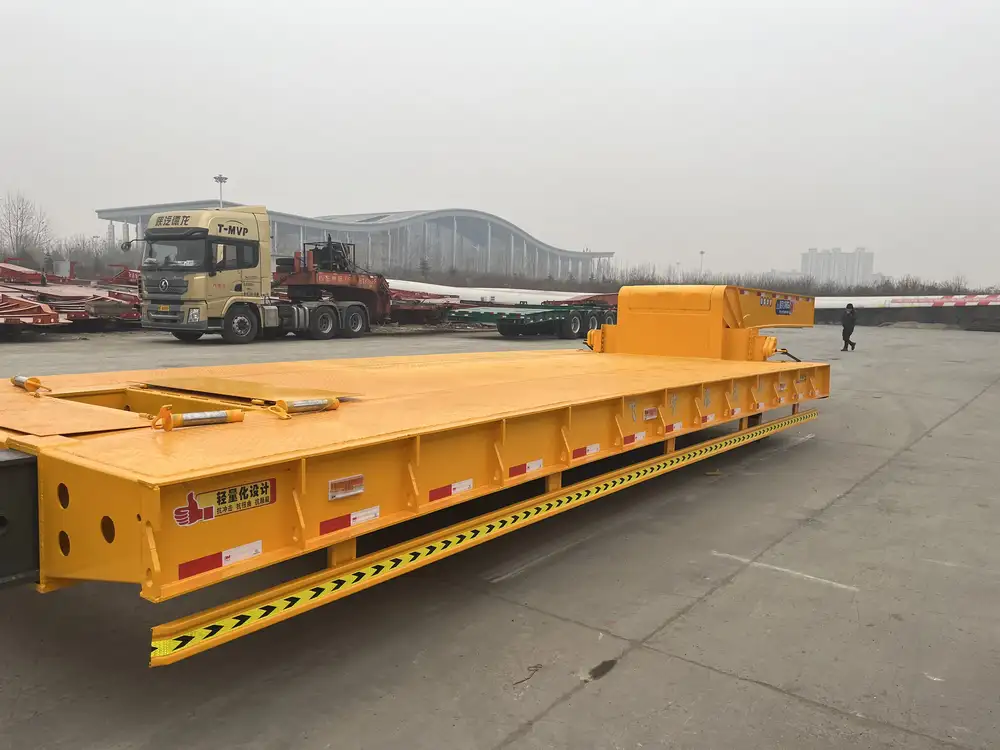
Versatility in Operations
Fixed skeletal trailers are not just limited to one type of cargo; they can easily accommodate a range of container sizes and types. This versatility makes them indispensable for freight companies looking to optimize their fleet for different logistical demands.
- Intermodal Transport: Ideal for quick transitions between ships, trains, and trucks.
- Heavy Machinery: Suitable for transporting construction equipment with proper attachments.
- Customizable Options: Adaptable for various attachment options, enhancing flexibility in cargo types.
Cost-Effectiveness
With the rising operational costs in transportation, fixed skeletal trailers stand out as a cost-effective solution:
- Fuel Efficiency: Their lightweight design can lead to decreased fuel consumption, contributing to savings on long-haul routes.
- Reduced Maintenance: Simpler structures translate into lower upkeep costs over the lifespan of the trailer.
Key Features of Fixed Skeletal Trailers
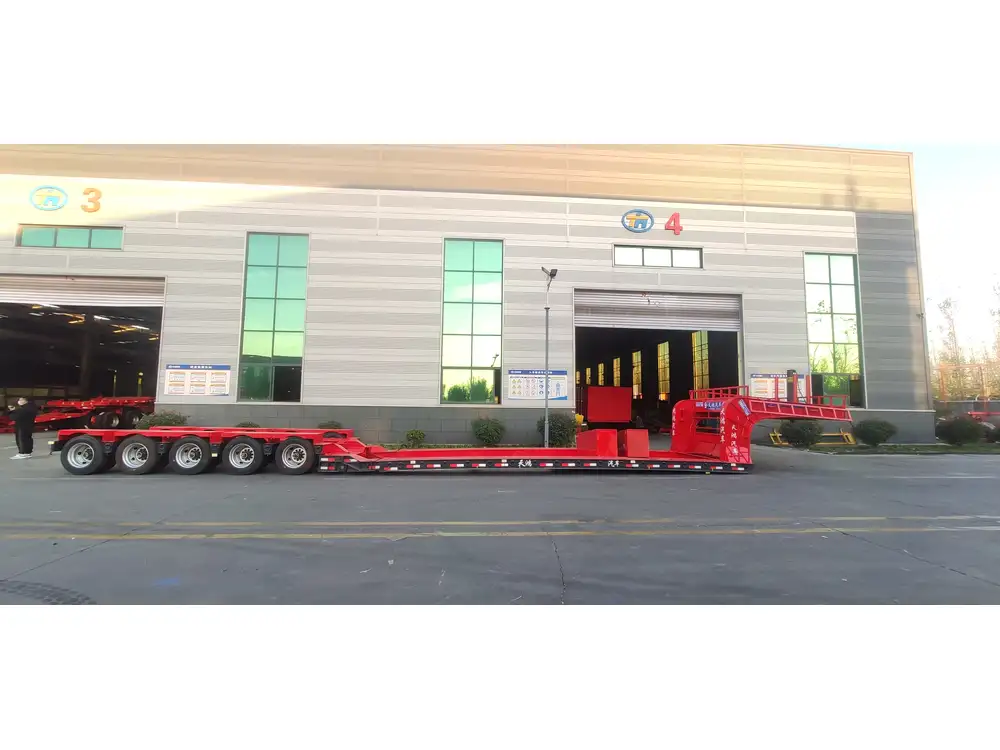
Structural Integrity
Engineered for strength and resilience, fixed skeletal trailers are designed to endure harsh conditions. The use of high-strength steel helps maintain structural integrity while keeping the trailer lightweight.
Safety Measures
Safety is a critical factor in trailer design. Fixed skeletal trailers incorporate several safety features:
- Load Security: Safeguards and secure fastening points to ensure container stability during transit.
- Braking Systems: Advanced braking systems that enhance stopping power and control.
Compatibility and Customization
Fixed skeletal trailers offer numerous customization options to cater to diverse industry needs:
- Height Adjustments: Ability to adjust for different load heights.
- Container Locks: Mechanisms designed to secure cargo efficiently.
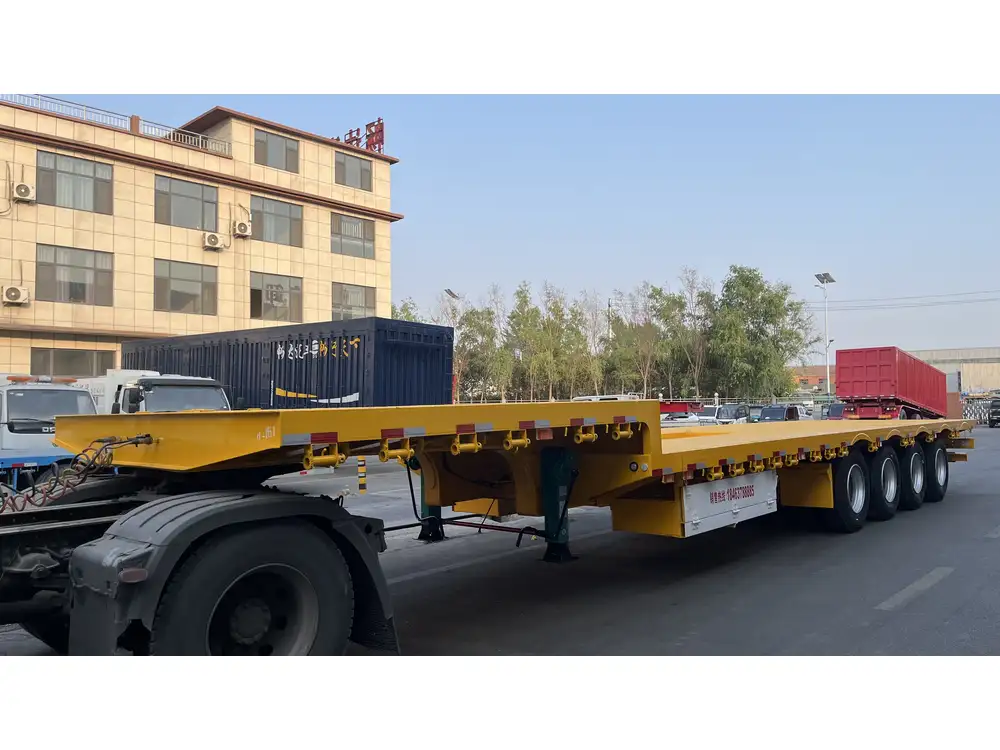
Applications in Various Industries
Shipping and Logistics
Fixed skeletal trailers facilitate seamless intermodal shipping, enabling the efficient transfer of containers between different transport modes. This is crucial for businesses aiming to streamline their logistics operations.
Construction
The construction industry benefits significantly from the use of fixed skeletal trailers for transporting heavy machinery and site materials. Their robust build is capable of handling high weights while remaining agile on the road.

Agricultural Transport
Farms and agricultural businesses utilize fixed skeletal trailers to move goods like grains, crops, and machinery, allowing for optimization of farm-to-market logistics.
Choosing the Right Fixed Skeletal Trailer
Assessing Your Needs
Before investing in a fixed skeletal trailer, it is essential to evaluate specific operational needs. Considerations should include:
- Type of Cargo: Identify the primary goods to be transported.
- Weight Requirements: Determine the necessary payload capacity.
- Transport Routes: Analyze the infrastructure along intended travel routes.
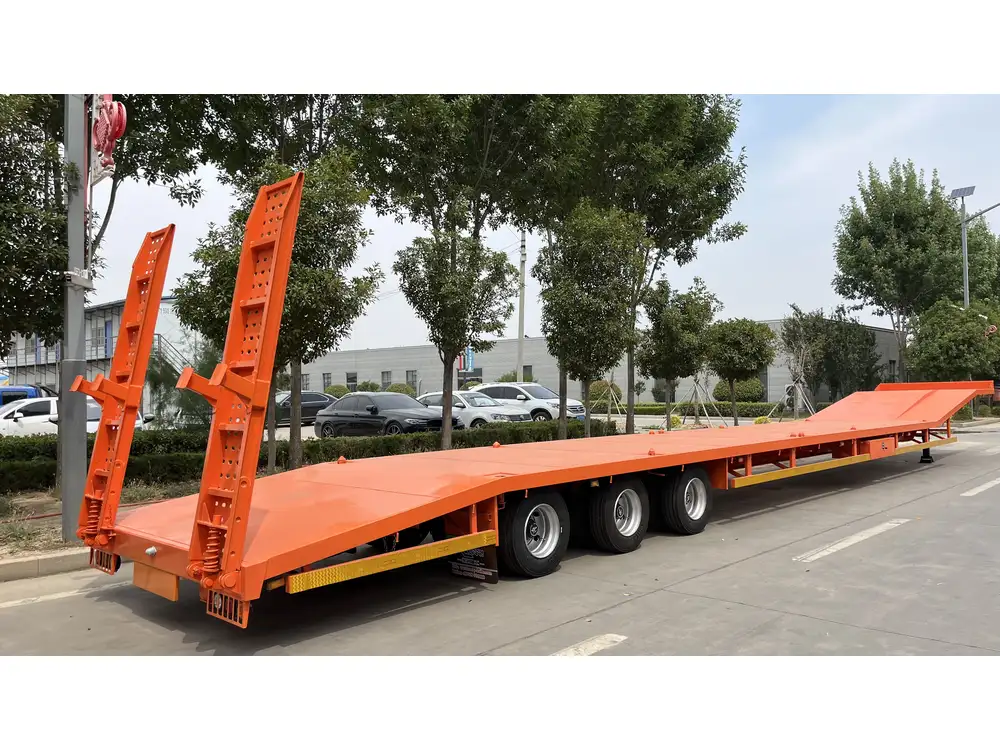
Maintenance Considerations
Regular maintenance is crucial for extending the life of your fixed skeletal trailer. This includes:
- Routine Inspections: Check for wear and tear, particularly on the braking system and tires.
- Lubrication: Keep all moving parts well-lubricated to avoid friction-related issues.
| Maintenance Task | Frequency | Importance |
|---|---|---|
| Brake Inspection | Monthly | Ensures safety |
| Tire Pressure Check | Weekly | Optimizes handling |
| Structural Integrity Check | Bi-Annually | Detects potential issues |
Regulatory and Compliance Aspects
Understanding the legal framework governing trailer usage is vital. This includes:
- Weight Limits: Adhering to jurisdiction-specific weight regulations.
- Registration: Ensuring proper registration and compliance with transportation laws.
Environmental Regulations
With rising environmental awareness, businesses must also be cognizant of regulations pertaining to emissions and sustainability in trailer manufacturing and operation.
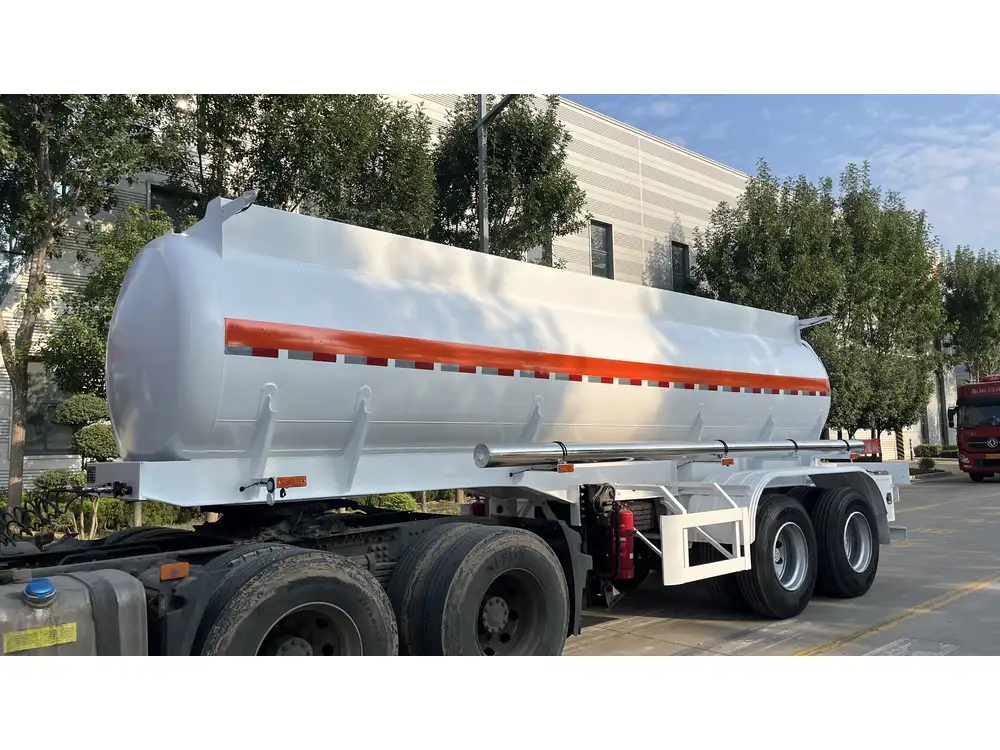
Innovations in Fixed Skeletal Trailers
The industry is evolving, with manufacturers introducing advanced technologies to enhance the performance and efficiency of fixed skeletal trailers. Recent innovations include:
- Telematics Systems: This technology allows fleet managers to track trailer performance and location in real time.
- Lightweight Materials: Advanced materials that reduce weight while maintaining strength are becoming more prevalent, further enhancing payload capabilities.
Future Trends
- Electric Trailers: As the push for sustainability grows, the emergence of electric trailers designed for zero emissions may reshape the industry.
- Sensor Technology: Enhanced sensor capabilities to monitor load and environmental conditions could drastically improve operational efficiency and safety.
Conclusion: Investing in Fixed Skeletal Trailers
In the face of ongoing changes and challenges in the transportation sector, opting for fixed skeletal trailers can position your business for growth and competitive advantage. Their strength, versatility, and cost-effectiveness render them an invaluable component in logistics and transport. By understanding the comprehensive advantages and operational nuances of fixed skeletal trailers, stakeholders are better equipped to make informed decisions that promote efficiency and sustainability.
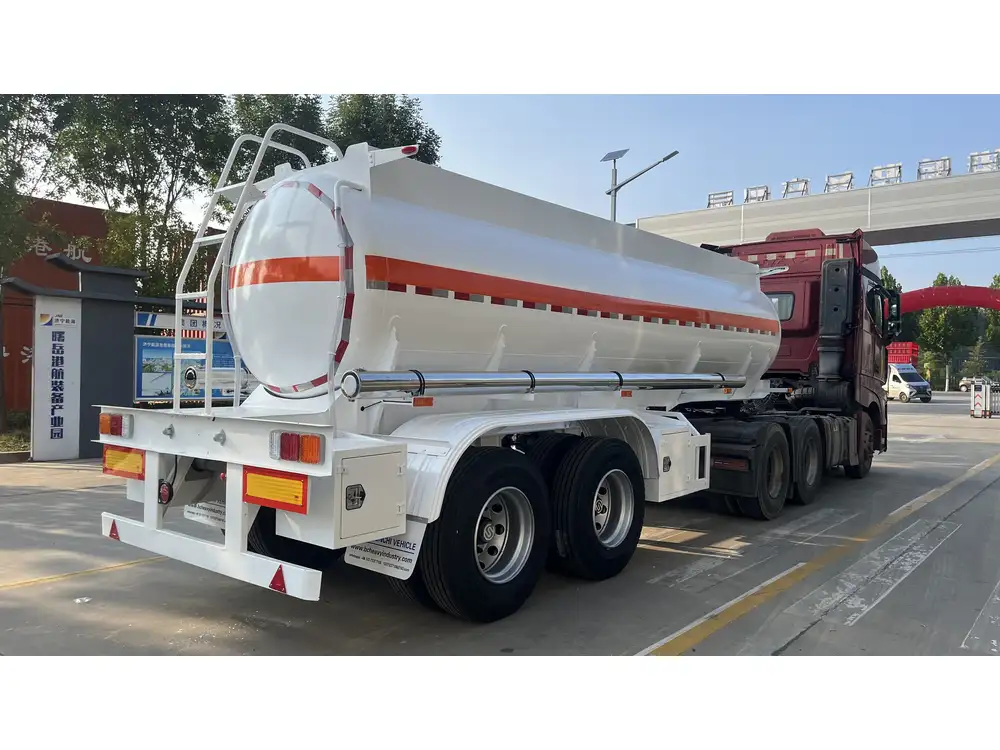
Call to Action
Are you ready to enhance your logistics operations with cutting-edge fixed skeletal trailers? Contact us today to explore our range of options, designed to meet your specific needs. The future of cargo transportation awaits!



